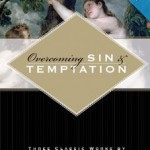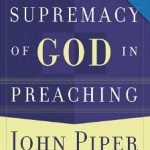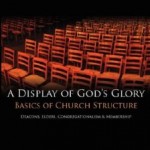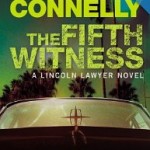 The Mortification of Sin by John Owen. I try to reread this book once every year because it’s just that good. Every Christian needs continual encouragement in the fight against sin and Mortification has some mighty fine fuel for the fight. Owen is a surgeon of the soul par excellence, for he cuts and heals in all the right places. The book reveals Puritan pithiness at its best; for example, “Mortification from a self-strength, carried on by ways of self-invention, to the end of a self-righteousness, is the soul and substance of all false religion in the world,” and, “Do you mortify? Do you make it your daily work? You must always be at it while you live; do not take a day off from this work; always be killing sin or it will be killing you.”
The Mortification of Sin by John Owen. I try to reread this book once every year because it’s just that good. Every Christian needs continual encouragement in the fight against sin and Mortification has some mighty fine fuel for the fight. Owen is a surgeon of the soul par excellence, for he cuts and heals in all the right places. The book reveals Puritan pithiness at its best; for example, “Mortification from a self-strength, carried on by ways of self-invention, to the end of a self-righteousness, is the soul and substance of all false religion in the world,” and, “Do you mortify? Do you make it your daily work? You must always be at it while you live; do not take a day off from this work; always be killing sin or it will be killing you.”
 The Supremacy of God in Preaching by John Piper. This book is short, just over 100 pages, but packs a punch typical of Piper. He defines preaching as “expository exultation” and then unfolds that theme in two parts: 1) Why God Should Be Supreme in Preaching, and 2) How to Make God Supreme in Preaching: Guidance from the Ministry of Jonathan Edwards. Although originally published in 1990, the book remains a clarion call to contemporary preachers to pursue “gravity and gladness” in preaching. One of the few books on preaching that, I think, will survive in print for decades.
The Supremacy of God in Preaching by John Piper. This book is short, just over 100 pages, but packs a punch typical of Piper. He defines preaching as “expository exultation” and then unfolds that theme in two parts: 1) Why God Should Be Supreme in Preaching, and 2) How to Make God Supreme in Preaching: Guidance from the Ministry of Jonathan Edwards. Although originally published in 1990, the book remains a clarion call to contemporary preachers to pursue “gravity and gladness” in preaching. One of the few books on preaching that, I think, will survive in print for decades.
 A Display of God’s Glory by Mark Dever. The finest primer on congregationalist polity that I’ve read. While some readers might want more detailed explanation on various congregational convictions, the book’s aim to provide the “basics of church structure” and it succeeds. A strength of the book is the emphasis Dever places on church unity as a primary aim and fruit of biblical governance. He has a masterful discussion on what issues merit congregational involvement and which issues congregations should joyfully defer to installed leadership. This is an excellent training resource for elder-led congregational churches.
A Display of God’s Glory by Mark Dever. The finest primer on congregationalist polity that I’ve read. While some readers might want more detailed explanation on various congregational convictions, the book’s aim to provide the “basics of church structure” and it succeeds. A strength of the book is the emphasis Dever places on church unity as a primary aim and fruit of biblical governance. He has a masterful discussion on what issues merit congregational involvement and which issues congregations should joyfully defer to installed leadership. This is an excellent training resource for elder-led congregational churches.
 The Fifth Witness by Michael Connelly. For better or worse (probably the latter), the majority of my fiction reading squarely falls into the “mystery/suspense/detective/lawyer” genre, a genre Michael Connelly dominates. The Fifth Witness is the most recent volume in his Mickey Haller series and Stephen King calls it, “One of the most bone-crunching courtroom dramas you’ll ever read.” I love Connelly because he steers clear of the gratuitous content permeating so many bestsellers today; mystery alone drives the story and captures the readers interest. Anyone familiar with Connelly knows he is a master of surprise endings and The Fifth Witness won’t disappoint in this area.
The Fifth Witness by Michael Connelly. For better or worse (probably the latter), the majority of my fiction reading squarely falls into the “mystery/suspense/detective/lawyer” genre, a genre Michael Connelly dominates. The Fifth Witness is the most recent volume in his Mickey Haller series and Stephen King calls it, “One of the most bone-crunching courtroom dramas you’ll ever read.” I love Connelly because he steers clear of the gratuitous content permeating so many bestsellers today; mystery alone drives the story and captures the readers interest. Anyone familiar with Connelly knows he is a master of surprise endings and The Fifth Witness won’t disappoint in this area.







 The Pastor’s Justification: Applying the Work of Christ in Your Life and Ministry
The Pastor’s Justification: Applying the Work of Christ in Your Life and Ministry Indwelling Sin
Indwelling Sin  The Priority of Preaching
The Priority of Preaching Empire of Blue Water: Captain Morgan’s Great Pirate Army, the Epic Battle for the Americas, and the Catastrophe That Ended the Outlaws’ Bloody Reign
Empire of Blue Water: Captain Morgan’s Great Pirate Army, the Epic Battle for the Americas, and the Catastrophe That Ended the Outlaws’ Bloody Reign